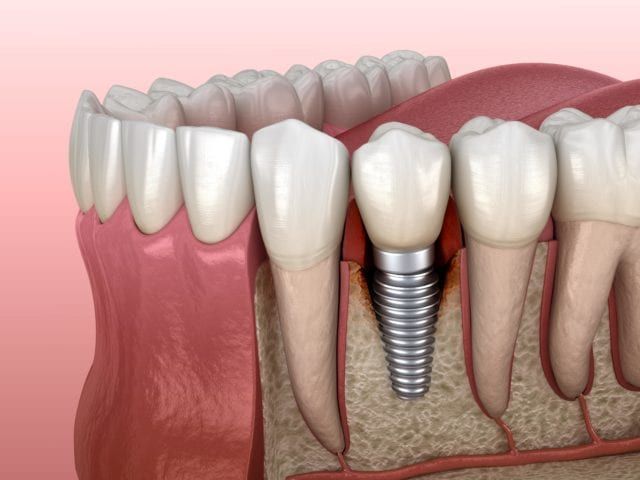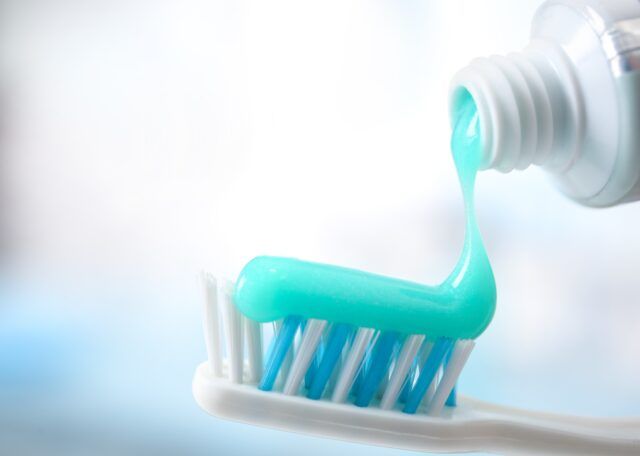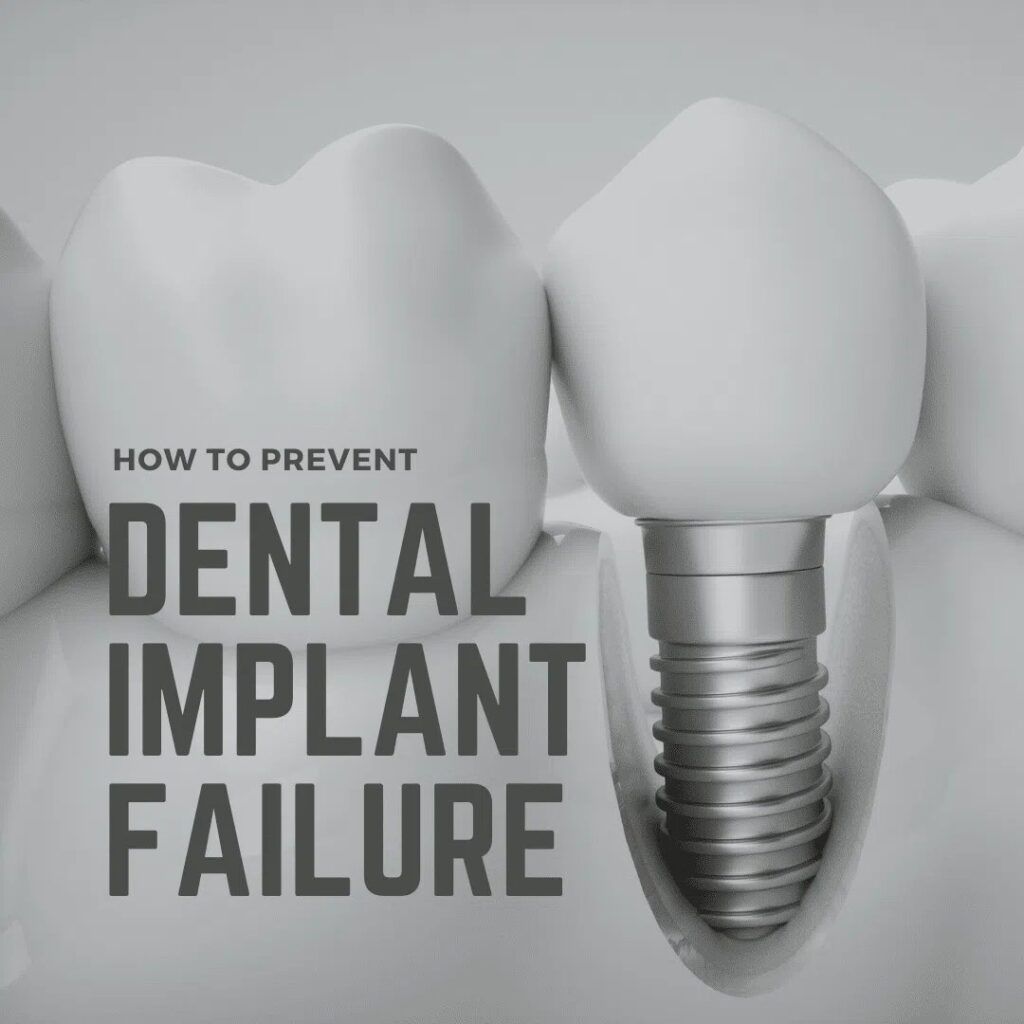Dental implants are a popular choice for many patients who have lost teeth due to decay, gum disease, or trauma. In fact, dental implant surgery is one of the most common surgical procedures in the world today. There are many reasons that people choose to get an implant rather than relying on dentures or other methods. However, sometimes implant failure can occur if they are not treated properly. This blog post will discuss some of the most common causes of dental implant failure and offer tips on how you can prevent it from happening!
Part One: Causes of Dental Implant Failure
For starters, it is important to know that dental implants have one of the highest success rates of any dental restoration. In fact, the American Academy of Implant Dentistry notes that the success rate of dental implants is around 95%! Although the failure rate of dental implants is very low, it is still important to evaluate some factors that can increase implant failure so that you can take the necessary steps to decrease your risk.
There are many different reasons that dental implants can fail. Some of the most common causes include:
Infection:

This is one of the most common causes of implant failure. If bacteria enters the implant site, it can cause inflammation and lead to the implant becoming loose or even failing completely. This is often known as peri-implantitis and it can eventually spread from the gums to the bone. It is important to keep the area clean and free of bacteria to reduce the risk of infection.
Poor Implant Placement:
If the implant is not placed correctly, it can lead to failure. The surgeon must take great care in placing the implant so that it is stable and will not move around. When an implant is not properly placed in the bone, this can cause the implant and bone to shift. This causes an unnatural appearance where the metal of the implant is usually visible due to receding gums. It is important to note that not all dentists have the same skill set when it comes to placing dental implants. This is why selecting an experienced implant dentist is important.
Inaccurate Dental Impressions:
Dental impressions are obtained when you bite down into a soft mixture that gradually hardens around your teeth to form a rubbery mold. Your dentist then uses this to create a model of your mouth that dental laboratories use to fabricate your implant-supported restoration. Dental impressions are not always precise, however, and this can lead to small gaps between the gums and the implant-supported restoration. In some cases, these discrepancies can allow bacteria to enter the gums and cause an infection.
Smoking:
Smoking can increase the risk of implant failure, as it can cause the tissues to become weak and increase the risk of infection. In fact, smoking raises the risk of implant failure so much that many implant dentists will not place dental implants unless the individual abstains from smoking for a set period of time.
Inadequate Oral Hygiene:
If you do not maintain good oral hygiene habits, it can lead to implant failure. This is because inadequate oral hygiene can allow bacterial levels in the mouth to increase. When there is too much bacteria, it can cause the gum tissue to become inflamed. If this inflammation continues, it can spread to the bone where it causes bone deterioration and potential implant failure.
Part Two: Tips for Preventing Dental Implant Failure
There are several things you can do to reduce the risk of dental implant failure and ensure a successful outcome:
Tip #1: Make sure you select a qualified surgeon who has experience with dental implants.
One of the most important ways to prevent dental implant failure is to make sure you select a qualified surgeon who has experience with dental implants. Not all dentists are created equal and not everyone is skilled in placing dental implants. It is important to do your research and find an implant dentist who has a proven track record of success.
Not only do implant dentists have experience in placing dental implants, but many also use specialized technology, such as computer-guided implant software, digital oral scans, and in-office milling machines. The use of specialized technology results in accurate measurements, precise implant placement, and a decreased risk of complications.
Tip #2: Follow all postoperative instructions closely.
Another important way to prevent dental implant failure is to follow all postoperative instructions closely, including taking any prescribed medications and keeping the area clean and free of bacteria. No matter how fantastic your implant dentist is, you are more likely to experience implant failure if you don’t follow their postoperative instructions.
Besides taking medications and keeping the area clean, you can also expect temporary diet modifications and possible lifestyle modifications, such as not smoking. It is important that you discuss these postoperative guidelines before you get dental implants to ensure that this is the right procedure for you.

Tip #3: Maintain good oral hygiene habits.
To properly care for your new implants, it is important to maintain them by brushing at least twice a day and flossing daily. This removes excess plaque from the surface of your restoration, as well as from along the gum line. Even though implant-supported restorations are not real teeth and do not accumulate plaque like real teeth would, they can still accumulate plaque if not properly cleaned. This plaque can lead to gum disease, which can cause the implant to become infected. In severe cases, this infection can spread to the bone, causing it to deteriorate and the implant to fail.
Tip #4: Avoid smoking and drinking alcohol in excessive amounts.
Smoking and drinking alcohol in excessive amounts can increase the risk of implant failure. Smoking causes the tissues to become weak, which increases the risk of infection. Drinking alcohol in excess can also lead to dry mouth, increased postoperative pain, and the risk of avascular necrosis. Alcohol has also been noted to interfere with osseointegration. When you combine smoking and drinking with dental implants, it significantly increases your risk of implant failure.
Tip #5: Visit your dentist for regular checkups and cleanings.
A final way to prevent dental implant failure is to visit your dentist for regular checkups and cleanings. This allows your dentist to monitor the health of your implants and gums, as well as remove any plaque or tartar that may have built up around them. It also allows your implant dentist to identify potential problems early so that they can be effectively treated before causing significant complications. In most cases, you can expect to visit your dentist at least once every six months, however your dentist may suggest more frequent visits depending on your oral health.
In Conclusion:
Dental implants have an exceptionally high success rate, but there is still a small risk of implant failure. The most common causes of implant failure are infection, poor implant placement or inaccurate dental impressions, smoking, and inadequate oral hygiene. However, there are several things you can do to prevent implant failure, including choosing an experienced dental implant dentist, following all postoperative instructions closely, maintaining good oral hygiene habits, avoiding smoking and drinking alcohol in excessive amounts, and visiting your dentist for regular checkups and cleanings. By taking these precautions, you can decrease the risk of implant failure and help ensure the long-term success of your dental implants.

